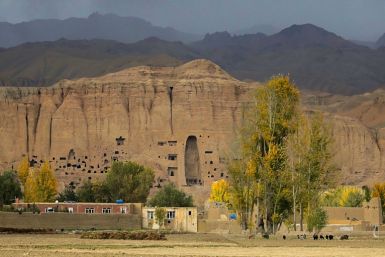Journalists CAGED in Egypt for 23 Hours a Day, Haunting Images for Loved Ones
Australian journalist Peter Greste, cameraman Baher Mohamed and Egyptian-Canadian bureau chief Mohammed Fadel Fahmy were all locked up in a cage for 23 hours a day for more than two months now.
The media men worked for Al Jazeera English satellite news network and were facing trials for allegedly being members of and aiding the terrorist group Muslim Brotherhood.
On Wednesday, these journalists were made to attend trial in Cairo still locked up in their cages handcuffed and wearing white prison uniforms.
Family members cried their hearts out for the haunting images they saw.
Juris and Lois Greste, told press during a Brisbane conference that they were horrified seeing their son in such way. And as much as they appreciate the public's clamour to free their son, seeing him inside a cage was sickening.
"It certainly shocked me. It absolutely rocked me to see him in the cage." Mr Greste also described the harsh conditions of his son's prison cell, which he shares with two other reporters for 23 hours a day. Peter says he now knows what it must be like for eskimos during long, cold dark winters," Mr Greste said.
Crossly, he compared his son's plight with how star athlete Oscar Pistorius was being treated in trial in South Africa.
"We cannot help being haunted and depressed by the public images of Peter and his journalist colleagues inside the court handcuffed and caged. In sharp contrast, I recall the images of Oscar Pistorius in South Africa. He is accused of a violent murder. Also, he is sitting in an open court dressed in a suit," Mr Greste said.
Mrs Greste was also agonising the fact that the judge in Cairo did not provide a translator in court. A source from the Australian embassy in Cairo said that the official translator was sent home as her work shift had finished.
Mr and Mrs Greste could only watch news about their son's trial from their home in Brisbane.
Family for Mr Fahmy on the other hand was able to attend the court hearing. Mr Fahmy suffered from a shoulder injury, but still he was made to sleep on the cold floor.
On one instance during trial, Mr Fahmy's father was so overwhelmed with emotion that he stood and interrupted the trial - his voice quaking with anger.
"My son has no relationship with the Muslim Brotherhood! Are you satisfied with the insults and injuries you're putting my son through?" he shouted.
He told court that his son had always been a reputable journalist as he previously worked for CNN and the New York Times.
Mr Fahmy's family told media that visiting him in jail was very hard for them.
"Yesterday was very difficult. He was very down. The men have been deprived of books, newspapers and other outlets to the outside world. They are "completely isolated," his brother Adel Fahmy said.
During trial, Mr Fahmy appealed in court to free him on the guarantee from the Canadian embassy that he will not leave the country. He was desperate to be released because of his terrible shoulder pain.
One security official prosecuting the journalists insist that as long as the journalists were collaborating with a channel that broadcasts false news and cooperates with the Brotherhood, then they were all member of the Brotherhood.
The charges against the journalists stemmed from the Egyptian officials' confusion over Al Jazeera English and Al Jazeera Mubasher Misr - the latter being the supporter of the Muslim Brotherhood.
Mr Fahmy said that they all work for Al Jazeera English and that he even told the network that "none of his content should appear on Al Jazeera Mubasher Misr".
He said that all staff members had valid cards from the Egyptian press centre.
Mr Greste supported Mr Fahmy's defense.
"The evidence of the first witness (security officer) seems to have fallen apart, and if the rest of the case is based on his evidence the whole case will fall apart. Nothing that incriminates us is in our equipment. " he said.
Soheib Saad, another defendant said he was physically and psychologically tortured by state security and that he had asked for a doctor to examine him but to no avail.
The trial was later adjourned to March 24.
"During the prosecution phase, we were very optimistic," Mr Fahmy's brother said.
"Now, what can I say? We still have hope. But we're very stressed about how it's playing out."






